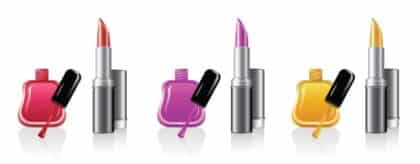There Are Plenty of Healthier Alternatives to Soda
It is a scientifically proven fact that regular soda is bad for your body and your health. Soda has been linked to obesity, diabetes, and even heart disease. The sugar that is in many sodas actually create cravings in your body, causing you to want more and more sugar filled soda. Thankfully, there are better, healthier alternatives to soda out there.
Why Soda Isn’t Good for You
There are many reasons why any drink that is high in sugar can be bad for you, especially when drank in high amounts every day. For instance, research has shown that drinking soda and other drinks like it can cause quick weight gain that is difficult to reverse. Scientists at Harvard also discovered that even one sugary drink per day can increase your risk of a heart attack by 20%! It can also increase asthma, affect your memory, and rots your teeth. In addition, sugary drinks found in cans can also contain BPA, which is a resin used to keep cans from reacting with the soda within them. Studies have shown consistent consumption of BPA has been linked to infertility, obesity, and some cancers.
How Sugary Drinks Affect Your Teeth
Not only does soda compromise your long-term health, it also wreaks havoc on your teeth.
Whenever anything acidic is consumed, soda included, the enamel that protects your teeth begins to erode. Soon, the layer underneath, the dentin, begins to be affected. In fact, even some composite fillings can be eaten away! Once this process begins, cavities start to form, damaging your teeth and causing expensive treatment. The worst part is, you won’t even feel it happening until the decay is getting close to your root, meaning you could need crowns or extractions versus a small filling – or just better soda alternatives.

Can’t I Just Drink Diet Soda?
Unfortunately, diet soda is not a good alternative to soda as it is just as bad as the regular, sugary drink, but for different reasons. Diet soda may sound healthier as it doesn’t have any calories, but it is loaded with artificial sweeteners instead of sugar to make it just as sweet if not more than regular soda.
Artificial sweeteners are made up of nothing but chemicals to enhance the sweetness of foods and drinks, and these do just as much harm, if not more, than sugar.
Alternatives to Soda Are Healthy and Delicious
Thankfully, there are healthy alternatives available to soda.
Water
Water is the most important drink for us humans. Our bodies are made up of over 50% of water, and, each day, it leaves our bodies in ways you may not have ever thought of: through sweating, breathing and using the bathroom. If we don’t replenish the water that leaves our bodies every single day, we become dehydrated, causing symptoms such as increased thirst, swelling of the tongue, weakness of the body, fatigue, vertigo, fainting and even heart palpitations, yet water still falls behind soft drinks in popularity in America.
Drinking plenty of water also makes you feel more full, thus helping control food cravings and caloric intake. It also improves the function of your organs and even causes your skin to glow. It’s a wonder why more Americans don’t drink more water.
Of course, some may not like drinking water all of the time; water is, it’s true, kind of bland. So to spice up a glass of water, try adding fresh slices of fruit or veggies to it. This gives it a hint of tasty flavor. Flavored bottled water and flavor additives, though, have added sugar.
Almond Milk
This alternative to soda is also an alternative to dairy milk, which should be consumed with moderation anyway. Almond milk is cholesterol free and full of vitamin D and calcium. There are chocolate or vanilla flavors, but reach for the light or sugar-free options instead to get the best benefits.
Green Tea
Not only has research been done on how green tea can help reduce your risk of heart disease, kidney stones and even some cancers, but it has a sweetness to it that is hard to top. There are other teas as well that can be a healthy alternative to soda. Green tea, however, doesn’t have any calories in it if enjoyed plain. It also comes in many different flavors as well, and it can be enjoyed hot or cold.
Green tea packets are sold in any store that sells coffee and tea. Another great option is to buy loose leaf tea. Use a diffuser so you can get the most out of tea’s health benefits by drinking straight from the source!
Red Wine
For drinks while out and about with friends or family, skip your normal whiskey diet or Jack and Coke. Instead, order a glass or two of red wine. It is actually one of the best alternatives to soda. Red wine as a good amount of antioxidants. When drank in moderation, it can actually help reduce heart issues such as cardiovascular disease and strokes. Just make sure you buy a red wine that doesn’t have any additives or sulfates.
Black Coffee
Just like red wine, when consumed in moderation, black coffee has many health benefits. Studies have shown that a cup a day can help decrease the risk of diabetes, colon cancer, and Alzheimer’s. But, of course, you need to make sure you drink the coffee without any sugary additives.
Alternatives to Soda to Avoid
- Fruit juice
- Lemonade
- Sweetened iced tea
- Smoothies
- Hot cocoa
- Energy and sports drinks
- Tonic water
- Sugary coffee drinks (sorry, Starbucks lovers)
- Beer
- Margaritas
There Are Many Alternatives to Soda for Your Family to Try
Instead of reaching for a soda when hit with a craving for something sweet, choose one of the above alternatives instead. Your mind, body, and teeth will thank you!


